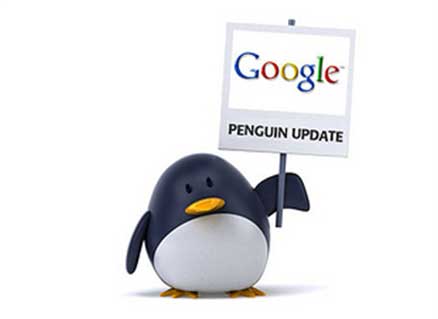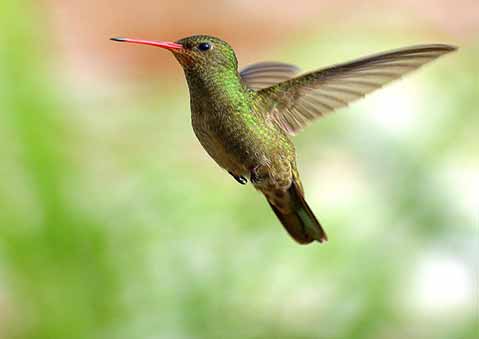As all digital marketers know Google celebrated their 15th birthday in style by announcing they were making the biggest change to their algorithm since 2001, talk about a birthday surprise! This algorithm update focusses on providing searchers more precise results based on semantic search rather than individual search terms and has been named Google Hummingbird.

So after such a big overhaul of their algorithm you may have thought Google would have given marketers some respite, however, think again as you would be wrong. In conjunction with the Hummingbird update Google has launched Google Penguin update number 5 which they have labelled Google Penguin 2.1.
Google Penguin Overview
If we go back to the previous Google Penguin update brilliantly explained by Alex Gaiger in her blog post Google Penguin Update 4/2.0 Explained we learn that Google Penguin was specifically launched by Google to eradicate websites from search results that display substandard or spammy content. Some of the main SEO tactics these types of websites deployed to gain their rankings include keyword stuffing, excessive low quality links or duplicate content. Therefore when a searcher landed on this type of site their search query was not satisfied.
In essence websites such as these make a searchers life an excruciating experience, hence the birth of Google Penguin, so hopefully we can finally see the back of these websites for good!
Google Penguin 5/2.1
Anyway enough about the past, let’s delve into what we know so far about the Google Penguin 2.1/5 update and what impact it is likely to have on how Google ranks websites in its search results moving forward.
The first piece of information given to marketers from Google’s Matt Cutts is it will be affecting 1% of searches to a noticeable degree. This would suggest this Penguin update isn’t going to be as widespread as the original Google Penguin update which impacted 3.1% of search results or the Google Penguin 2.0/4 update which impacted 2.3% of search results.

However businesses DO NOT rest on your laurels. This update is still likely to have a major impact on how Google ranks websites in search results. Especially considering the Hummingbird algorithm update is basically Google’s way of saying “We’re taking user experience when searching to the next level.” So although we don’t know that much about the overall impact the latest Penguin update will have at this early stage, I predict we will begin to see a few changes in the near future.
Google Penguin & Hummingbird – A Perfect Tag Team?
As early signs have suggested, Google Penguin 2.1 has been launched to compliment the Google Hummingbird update therefore in order to attempt to predict what we can expect from Google Penguin we should briefly overview what the Google Hummingbird algorithm seeks to achieve:
- Improve Google’s ability to understand language in the correct context, rather than just matching keyword combinations. This way of semantic search strives to provide users with quicker access to relevant content on the web.
- This will attempt to create a more even playing field which could allow for smaller websites who are optimised for long tail keyword search terms the opportunity to rank in search results over larger competitors.
- Page optimisation is going to be important.
- Google Hummingbird has been designed to also meet the needs of searchers who use mobile devices and search by speaking into their phones.

This is just a brief overview of the excitement that Google Hummingbird is going to bring to a desktop, tablet and mobile screen near you, however, if you want more information on the Hummingbird algorithm then I suggest you read Shirin’s Blog Post ‘Attack Of The Hummingbird – The Death Of SEO? ’
Taking all of this into account I think there are going to be 3 main things the Google Penguin 2.1 & Google Hummingbird update will target:

Onsite Content
This is the big one in my personal opinion. Google have been saying year upon year since they formed as a company that their aim is to provide searchers with the most enhanced set of results for a specific search query. We have already seen this begin to take place before the Hummingbird algorithm with the introduction of the Google Knowledge Graph they’re just now beginning to take it to a more advanced level.
In a recent interview with the BBC following the Hummingbird update Amit Singhal vice president of Google states that moving forward ‘humanity will be in a different place, where everyone from the King of Spain to the poorest farmer in Africa will have access to the richest content that’s out there on the web via the devices you have in your pocket’.
If you read in between the lines it is looking very likely that if the content on your website is not up to scratch and relevant to what people are searching for then Google Penguin is going to come down on your website like a ton of bricks. This means only the websites with the best content will survive.
Low Quality Content Marketing
In a rush to avoid being hit by the Google Penguin update there has been a lot of webmasters scrambling to disavow links that are considered to be low quality before their websites get hit by Google Penguin. In some instances I believe people are over panicking for if you are building links to a site in an ethical way with the searcher in mind then you will be adding value to a page. On the contrary, websites that are building high volumes of low quality links as they think this equates to their website having more authority in search results will find themselves quickly dropping out of the rankings.
Mobile
In addition I believe that businesses with websites compatible on different devices such as tablets and mobiles will begin to take a preference when Google considers how to rank websites in search results. Judging by the way technology is heading more and more people are searching via mobile. Therefore if websites want to maintain their rankings they will need to display their information clearly across many devices in order to meet different searchers needs. This may be more of a Google Hummingbird update rather than a Google Penguin update, however, it is definitely something businesses should be considering in their strategy.
Final Thoughts
Ultimately Google are trying to do what anyone who uses the internet as a resource wants and that is to provide the best information for a particular search query. In my opinion the latest Google Penguin update is going to be a continuation of the previous updates in order for Google to clear away the next layer of spam and irrelevant websites appearing in our search results.
From a marketers perspective I personally welcome the latest Google Penguin update as we are forced to continue to improve the content on our website both onsite and offsite in order to meet Google’s guidelines but more importantly at the same time providing a more relevant website for your visitors.
Follow my contributions to the blog to find out more about Digital Marketing or sign up to the ThoughtShift Guest List, our monthly email, to keep up-to-date on all our blog posts, guides and events.





